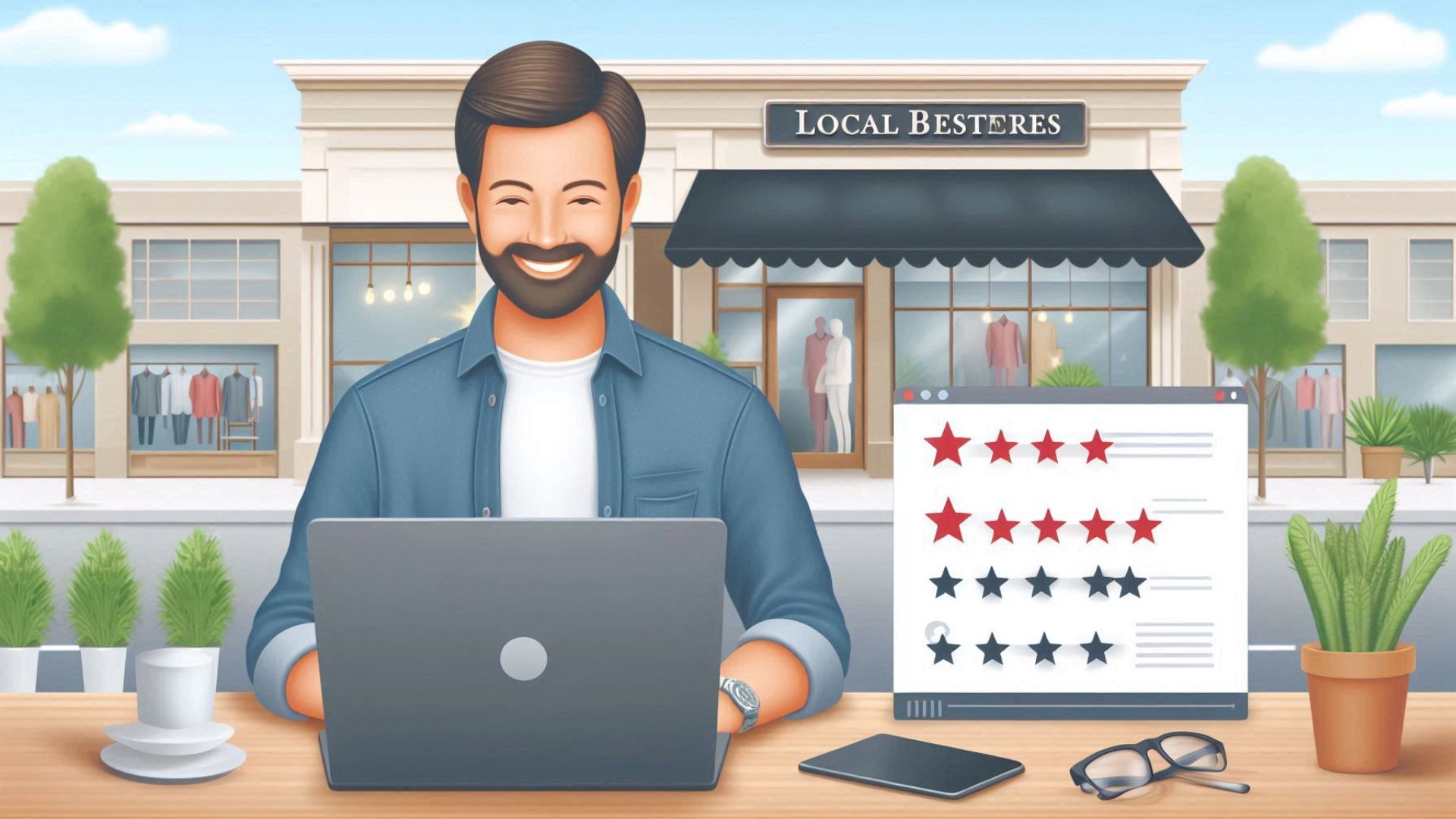How do I Improve My Local SEO Ranking?
Local SEO is a type of SEO that helps improve your online presence so you show up higher in local search results.
It’s key for boosting both foot traffic to your store and website visits, managing your reputation online, and staying competitive with other businesses in your area.
How Local SEO Can Transform Your Business
People use local search to find everything from restaurants to plumbers. So, people in your area are probably looking for the products or services you offer.

By optimizing for local searches, you can make sure your business shows up when they search for what you do.
Why does this matter?
Because people searching locally usually have high purchase intent—they’re ready to buy. So, ranking for local keywords is a great way to attract people who are looking to make a purchase right now.
Local SEO also helps you stay competitive with other businesses nearby. It can give you an edge over businesses that focus only on traditional search rankings.
Let’s see what optimizing for local search looks like.
For example, when searching for “Italian restaurant near Pike St, Seattle,” three businesses show up.
Some of them appear in the regular search results as clickable links. But more importantly, they also show up on a map, making it easy for potential customers to find directions.
These results also display useful details like reviews and business hours, helping people decide where to go.

9 Tips to Improve Local SEO

1. Optimize Your Google Business Profile
Your Google Business Profile is a free listing from Google that can help improve your local SEO. It plays a big role in how your business ranks for local searches.
When people search locally on Google, they usually see three types of results:
- Sponsored ads at the top
- A local pack (this shows local businesses that match the search term, with a map showing their location)
- Organic search results (the clickable blue links) appear below the local pack
If you don’t want to pay for ads, aiming for the local pack is a great option. Optimizing your Google Business Profile can help you show up there. Google uses information from your profile (along with other sources) to decide how to rank you. So, it’s important to make sure your profile is accurate and detailed.
Here’s what to include in your profile:
- Business hours
- Business logo
- Phone number
- Street address
- Photos of the interior and exterior of your business
- Services offered
- Website link
- Service areas
Choosing the right business category is also important. Google offers thousands of options, so pick one that best describes your business. For example, if your restaurant specializes in Ethiopian food, choose “Ethiopian restaurant” rather than just “Restaurant.”
Google also lets you add up to 10 subcategories. For example, if your restaurant offers gluten-free options or catering, you can add those too. Just don’t go overboard—adding very broad categories like “African restaurant” isn’t necessary and could hurt your relevance.
2. Get Relevant Local Citations
Local citations are mentions of your business online, like on local directories, social media, or other websites. The more trustworthy sites mention your business with consistent information, the better Google can rank you for local searches.
You can use tools like Semrush’s Listing Management to help you build and manage your citations. Start by entering your business name in the search bar, and the tool will show you where your business is listed, and whether any information is missing or incorrect.
Focus on the most relevant citation sites for your business. For example, if you run a restaurant, sites like Grubhub or OpenTable are great choices, along with broader sites like Yelp, Tripadvisor, and Foursquare. These well-known sites can help increase your visibility.

3. Use Local Data Aggregators to Distribute Business Data
Data aggregators are platforms that push your business information to multiple directories at once. This helps ensure your information is consistent across the web. Semrush partners with Yext to automatically distribute your business info. Just make sure your data is accurate, and you’re good to go.
4. Track and Manage Your Online Reviews
Good reviews can boost your local SEO, especially for businesses that show up in the local pack. Reviews also build trust with potential customers. So, make sure to monitor and respond to reviews.
Semrush’s Review Management tool can help you track reviews from 70+ directories. Responding to reviews, including negative ones, shows you care about feedback and can improve your reputation.
Encourage customers to leave reviews and make it easy for them by providing clear instructions and direct links to your review page.
5. Add Local Business Schema to Your Website
Schema markup is a way to add extra information to your website to help search engines understand your content better. Adding local business schema can provide important details about your business, like location and operating hours, which can help you rank higher for local searches.
You don’t need to be a coding expert to use schema—tools like Google’s Structured Data Markup Helper can guide you through the process.
6. Validate Your Schema Markup Before Deploying It
Before you implement your schema, it’s important to validate it. Use tools like the Schema Markup Validator to check for errors. Correcting any issues ensures Google can properly crawl your pages and avoid wasting your crawl budget.
7. Audit Your On-Page SEO Health
On-page SEO is essential for ranking well on Google. It involves making sure your webpages are optimized for search engines. To get started, use tools like the On Page SEO Checker to find areas for improvement.
8. Target Local Keywords
Local keywords are specific terms people use when searching for products or services in your area. Focusing on local keywords can help improve your rankings for local searches and drive more foot traffic to your business.
Use tools like Semrush’s Keyword Magic Tool to find relevant local keywords and optimize your content accordingly.

Also Read: How can I Earn Backlinks From Local Blogs?
9. Create and Publish Locally Relevant Content
Publishing content that’s relevant to your area can help Google see your business as more connected to local searches. Consider creating pages for each of your locations or blogging about local events, customer success stories, or neighborhood spotlights. Just make sure to avoid overstuffing pages with too many keywords, as this can hurt your SEO.




Post Comment